Representing Bengal’s Gaudiya Nritya on the world stage
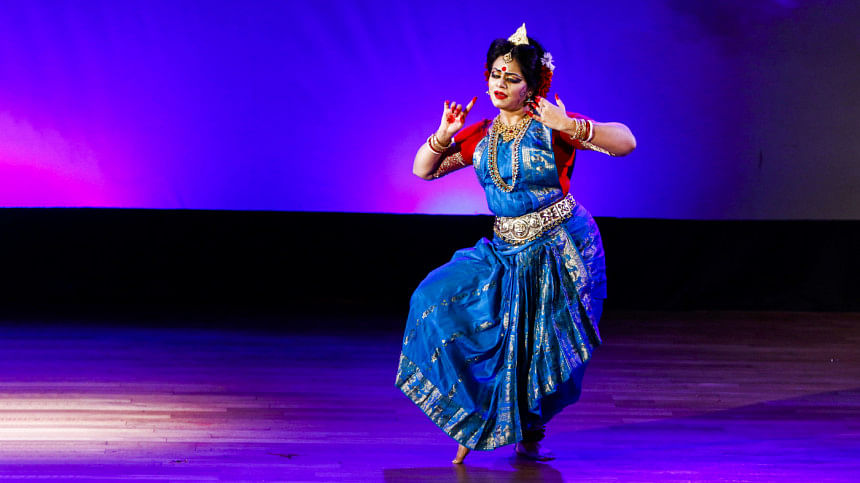
"Every piece of art that you create and practice can do wonders for you. It can take you to the deepest parts of your soul and allow you to see and experience things not readily visible. Art is an innate curiosity that drives my life, and thus, I live in art," says eminent dancer Rachel Priyanka Perris, who is taking Bengal's sole dance form, Gaudiya Nritya, to the world stage.

Rachel, also an Assistant Professor at Dhaka University, started learning various dance styles—Bharatanatyam, Odissi and Kathak— from renowned teachers. Curiously, she discovered the dance form that would shape the course of reconstruction and reemergence of the Bengali dance form Gaudiya Nritya in Bangladesh.
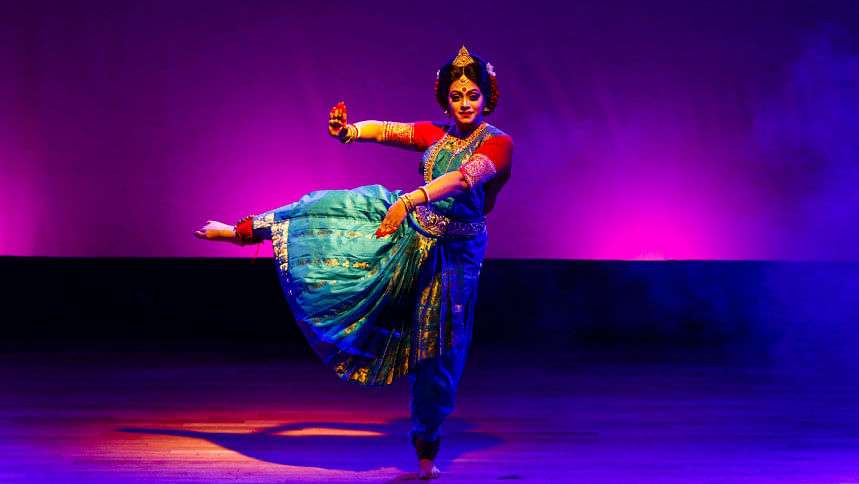
When asked about her introduction to the almost extinct dance form, Rachel recounted that she learned about it through a workshop during her school years. In ninth grade, the then 15-year-old Rachel saw a performance by a visiting company from Kolkata, captivating her with the dance style of classical dance legend Mahua Mukherjee and her troupe performing Gaudiya Nritya.

"I instantly fell in love with Gaudiya Nritya. The most dignified aspect of this particular dance form is its Bengal origin. I could instantly connect and relate to the structure, language and style," Rachel said.
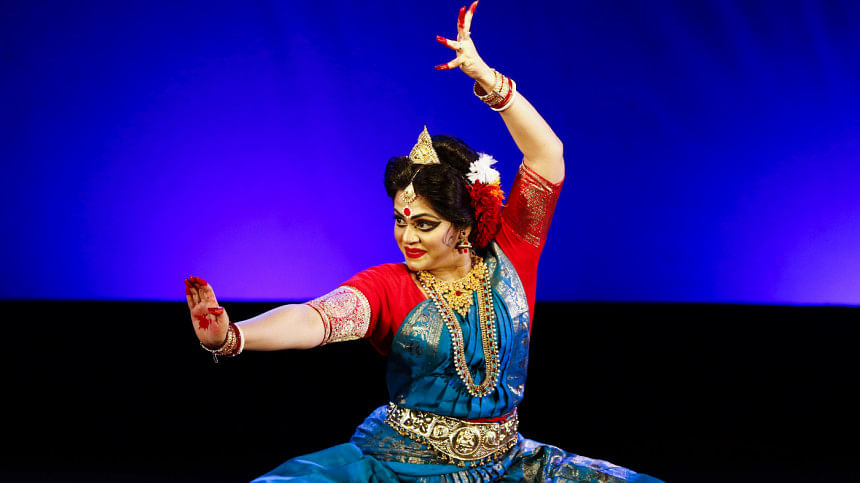
"I am a trained dancer in many other dance forms as well. Nonetheless, I feel Gaudiya speaks about our soul, identity and entity as an independent nationality with a strong cultural background and history . The technicality and postures are somewhat similar to Bharatanatyam, but if you look closely, you will see the philosophical and structural differences," the classical dancer explained.
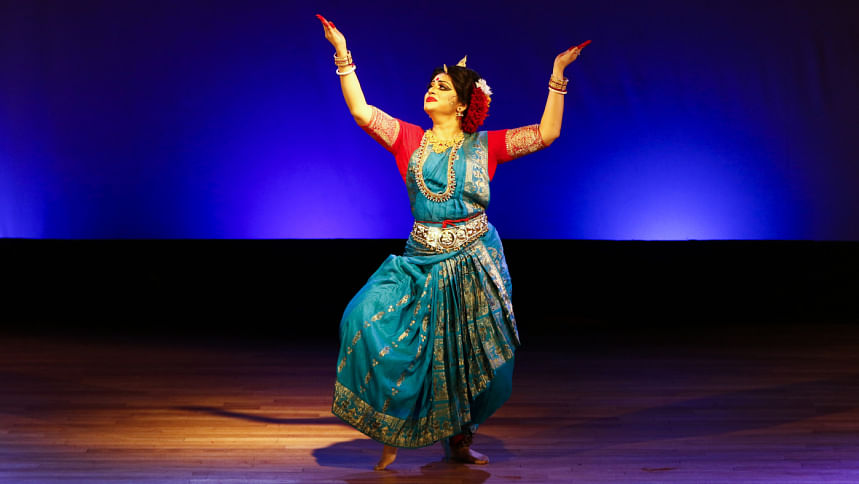
Gaudiya Nritya is a Bengali classical dance originating in Gaur, Bengal, the ancient capital of the region. Gaudiya Nritya is a composite art form representing the pre-colonial division of larger Bengal with a unique combination of music, history, poetry, literature, drama and rhythm.

Later, Rachel Perris studied at Rabindra Bharati, Kolkata, starting her Bachelor's degree on Bharatanatyam. "Going to Kolkata turned my life around completely. I actually began classes on Gaudiya with Mahua Mukherjee before my Bharatanatyam classes. My attention started shifting towards that form," the eminent dancer recalled.
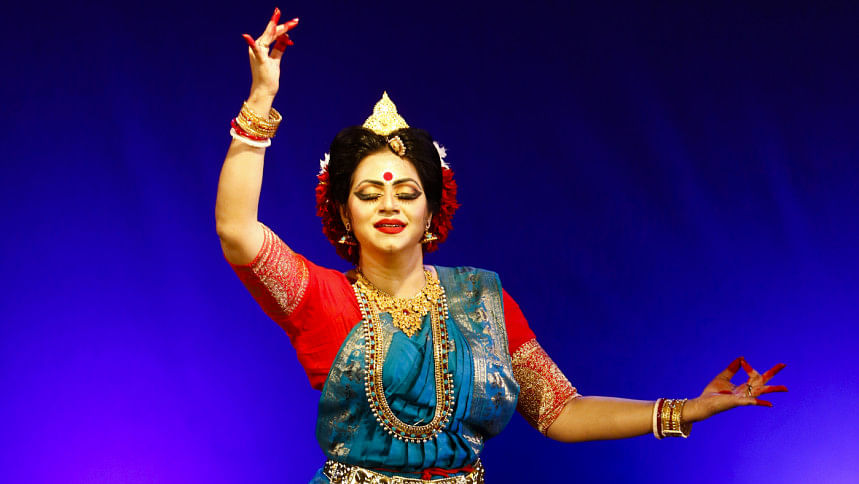
Rachel later joined Gaudiya Nritya Bharati, a Gaudiya dance troupe, and travelled throughout India for shows. She lived in the guidance and shelter of her Guru during her years in Kolkata, practicing dance day and night.
After completing her education in Kolkata, Rachel returned to Bangladesh, joined the Department of Dance at Dhaka University as a teacher, and aimed to spread the joy and practice of the dance form. The travelling dancer also continued to mesmerise art lovers worldwide, such as her recent visit to the Hemantika Festival in the UK, where her brilliant performance enthralled the audience.
Reflecting on the festivals she attended over the years, Rachel addressed a challenging chapter of her life. She said, "Wherever in the world I get invited to perform Gaudiya, the organisers and audiences love it. I cannot count how many times I received standing ovations at such dance events abroad."

"However, gaining recognition and acceptance for Gaudiya as a classical and independent dance form in my own country has been challenging. I have a dance school where I only train young dancers in Gaudiya, and my students love it. I am going everywhere in Bangladesh where they invite me to perform Gaudiya, as I understand how significant its existence is for our distinctive ethnicity and culture. I am doing my best to promote the dance form, but I am not receiving enough patronage for the unique dance style to be established appropriately as a distinct form," said the dance prodigy.
"What I aspire to see in my lifetime is Gaudiya Nritya being recognised as a Bengali classical dance form and being taught, practiced, performed, and appreciated in the country of its origin by the people meant to perform it," concluded Rachel, filled with hope, dreams, and optimism.

 For all latest news, follow The Daily Star's Google News channel.
For all latest news, follow The Daily Star's Google News channel. 






Comments